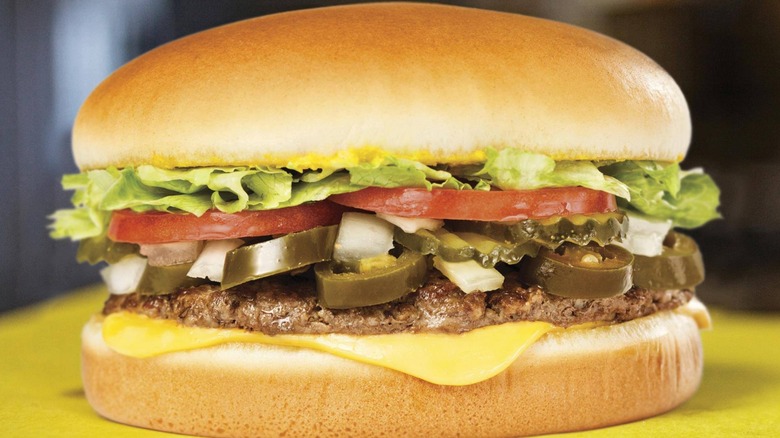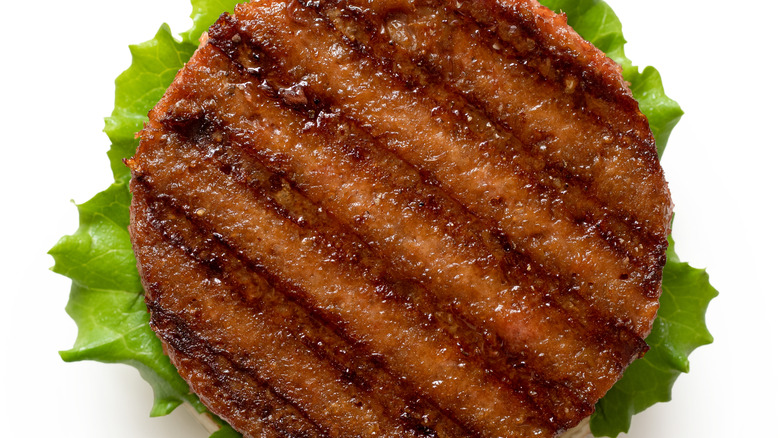Expert Claims Whataburger's Cheese Burger Isn't Actually That Healthy
Stop the internet. Huge news here: Whataburger's cheeseburgers are not a new superfood. Oh, wait, you say. Who on earth would have ever imagined that anything from Whataburger, or any cheeseburger, for that matter, would even be healthy? Maybe no one, but there was one survey that rated Whataburger tops on their list of healthiest fast food cheeseburgers. We're not disputing the findings, but being named the most nutritious fast-food cheeseburger is an achievement on par with being named the most intelligent single-celled organism (with apologies to any amoebas who may be reading this).
Rather than just piling on the survey and trashing the results, we wanted to do the responsible thing and consult with a nutrition expert to see what they thought about Whataburger's so-called "healthiest" burger. To that end, Mashed reached out to Dr. Mike Sevilla, M.D., and, no surprise, he's not too impressed with Whataburger's nutritional wonder burger. As he tells us, "When trying to determine whether a restaurant menu item can be considered healthy, the nutritional details are a good place to start." He goes on to point out that even Whataburger's cheese-free burger has 500+ calories (590, as per the menu), 25 fat grams, and 1200+ milligrams of sodium. A slice of Monterey Jack adds 60 calories, 5 fat grams, and 300+ milligrams of sodium, while American cheese tacks on 90 calories, 7 fat grams, and over 400 milligrams of sodium. In Dr. Sevilla's professional opinion, "This definitely would not be considered a healthy choice."
Dr. Sevilla recommends homemade burgers, instead
If you want a truly healthy cheeseburger, you're probably going to have to cook it yourself. According to Dr. Sevilla, it all starts with the meat. "I live in rural America," he tells us, saying "there are a lot of great local farms where I get my burger beef." Even if you can't buy your burger meat directly off of the cow, though, he suggests choosing meat with a lower fat content – 90% lean, for preference. The doctor also notes that "By cooking your meal at home, you get to decide how it's prepared, meaning you can use less salt, oil, etc."
You will also need to keep an eye on the toppings if you want a truly healthy burger. As Dr. Sevilla suggests, "Personalize your burger with your favorite toppings, like veggies." As opposed to your favorite toppings like bacon or fried onion rings, we presume. The doctor also advises using lower-calorie condiments such as ketchup, mustard, and salsa as opposed to higher-calorie ones like mayonnaise.
In Dr. Sevilla's opinion, burgers are a dish that should be saved for dining in. "Homemade burgers are fun to make," he enthuses, and as long as you pay attention to your ingredients and cooking technique, your own burger creation will likely be much better for you than anything you could get from Whataburger or another fast food chain.

